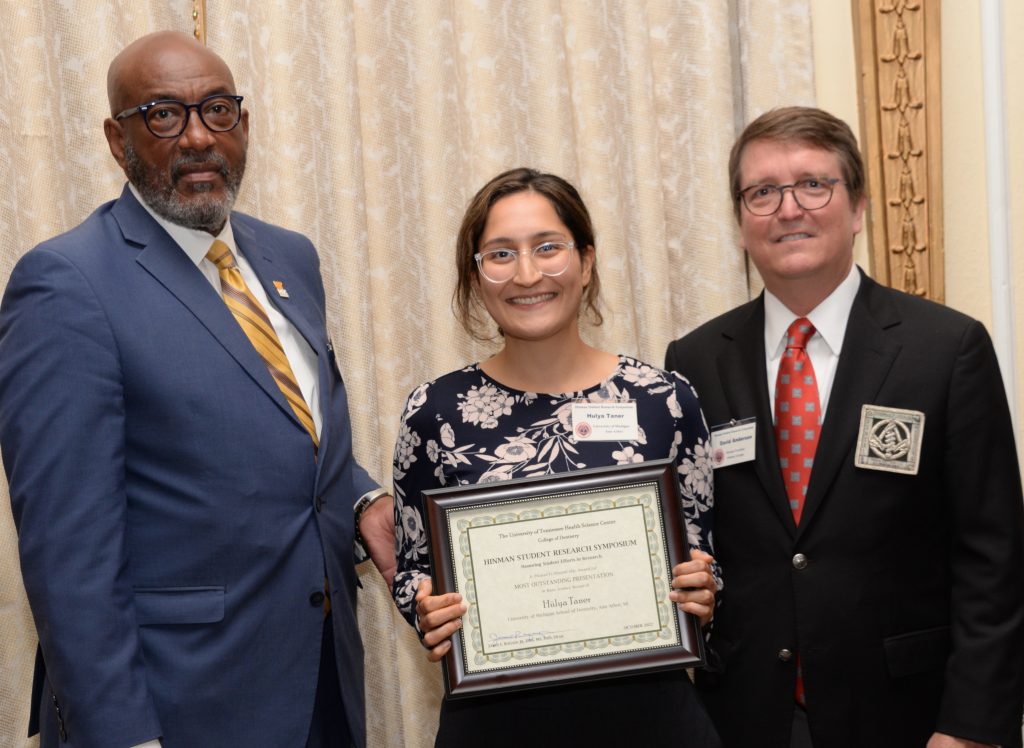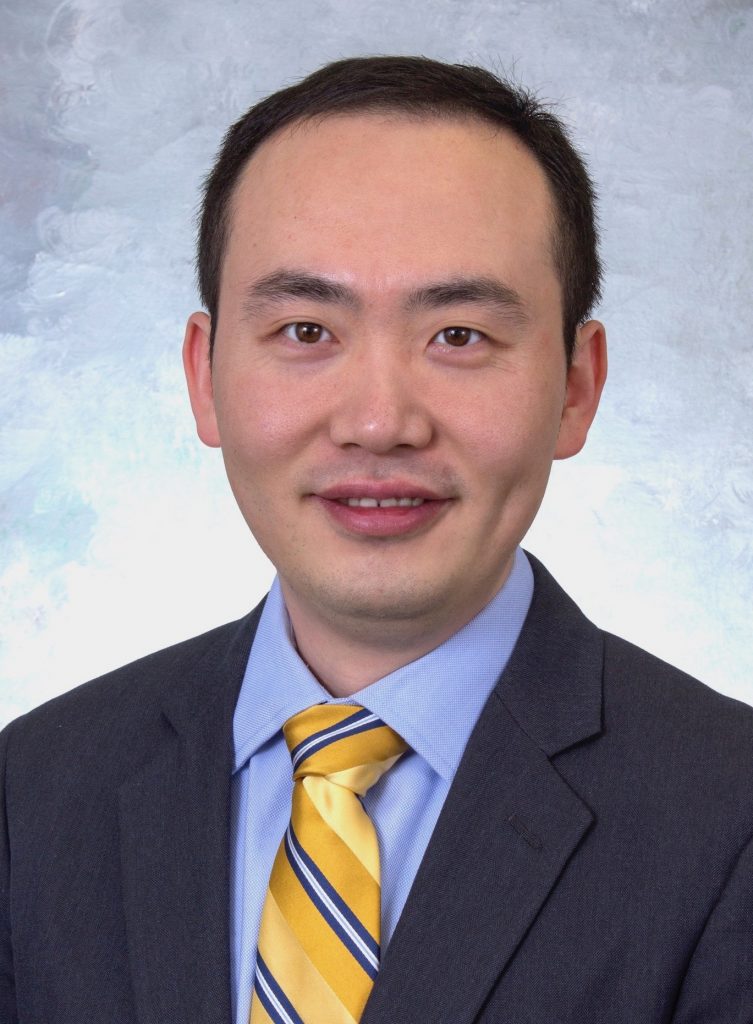School of Dentistry student receives national research award for study of head and neck cancer6 min read
Ann Arbor, Mich., Dec. 7, 2022 – Hülya Taner, a dual DDS-PhD student at the School of Dentistry, received an award for her scientific research in head and neck cancer at a recent national conference.

Taner received one of five awards presented in the Basic and Translational Research category at the 27th annual Hinman Student Research Symposium in Memphis, Tennessee, last month.
The symposium featured oral and poster presentations of research projects by 101 dental students and graduate trainees representing 46 dental schools in 30 states, the District of Columbia, Puerto Rico and a province of Canada. The symposium encourages student, faculty and administrators’ efforts in research and increases student awareness of opportunities for continuing dental education in future years. The symposium is sponsored by the University of Tennessee College of Dentistry and co-sponsored by the Hinman Dental Society, which holds one of the nation’s largest continuing dental education meetings each March in Atlanta.
Ten awards were given for the most outstanding student presentations, five in Clinical Research and five in Basic and Translational Research, in addition to an award from the National Students Research Group of the American Association for Dental Research.

Taner’s research presentation was for the project, “IL-1a-Mediated Suppressive Myeloid Function in the Initiation of Head and Neck Cancers.” Her research is under the direction of dental school faculty member Dr. Yu Leo Lei, Associate Professor in the Department of Periodontics and Oral Medicine.
Oral cancers arise in potentially pre-malignant precursor lesions, known as epithelial dysplasia. Although oral cancers have been well known to be invisible to the surveilling immune system, it is unclear how initiating cancers reach that point of no return. This research found that a subset of epithelial dysplasia expresses an oncogene, SOX2, which helps to recruit a group of immune cells that suppress productive anti-tumor immunity and cause smoldering inflammation at the lesional site. This key event establishes immune tolerance to encourage the tumors to initiate. Targeting this pathway can delay the onset of oral cancers, which offers a potentially new approach for oral cancer prevention in high-risk individuals.

Dr. Lei said Taner, who is in her third year of the seven-year DDS/PhD curriculum, has already made significant findings that contribute to more effective oral cancer prevention. “Currently, there is no reliable method to predict the transformation risks of oral epithelial dysplasia, and prevention approaches are also limited,” Lei said. “Hülya’s effort will not only help to develop new immunoprevention approaches for oral cancer, but also identify precursor lesions that are bona fide high-risk. This Hinman Symposium honor recognizes her research findings and, more importantly, is a reflection of her relentless pursuit of new scientific horizons and many hours behind the scenes.”
Taner’s research is supported by a grant that Lei administers as part of the “Cancer Moonshot Initiative” funded by the National Cancer Institute (NCI) and the National Institute of Dental and Craniofacial Research (NIDCR). Lei received a five-year, $3.8 million grant in October 2019 for research on new cancer prevention therapies. It is part of the NCI’s Immuno-Oncology Translational Network (IOTN), which fosters team science to translate basic discoveries to new cancer immunotherapies. The Cancer Moonshot Initiative was established on the recommendation of a national Blue-Ribbon Panel comprised of leading experts from a wide spectrum of scientific fields, cancer advocacy organizations and pharmaceutical companies. Congress passed the 21st Century Cures Act in December 2016, authorizing $1.8 billion in funding for the Initiative, which aims to achieve a decade’s worth of transformative progress in cancer prevention, diagnosis and treatment in just five years.
Taner earned her undergraduate degree from the University of North Carolina at Wilmington. She had gained an interest in dentistry while growing up in Alaska where a family friend operated a dental practice and by working in a non-profit dental clinic while in North Carolina. After completing her undergraduate studies, she entered a research program in an immunology lab at the NIDCR in Bethesda, Maryland. A year later, in 2020, she was accepted into the U-M dental school’s Oral Health Sciences dual DDS/PhD program.

Although she will earn both degrees, moving forward Taner sees herself as a scientist informed by her clinical experience as a dentist. “For me, I love the day-to-day, bread-and-butter of research. I see myself staying in dental research,” she said. “I’m interested in doing either a clinical research fellowship at the NIH, or joining a program in immuno-oncology research where I can continue my work. I see myself as a clinician-scientist who uses the dental training to supplement the research program.”
###
The University of Michigan School of Dentistry is one of the nation’s leading dental schools engaged in oral healthcare education, research, patient care and community service. General dental care clinics and specialty clinics providing advanced treatment enable the school to offer dental services and programs to patients throughout Michigan. Classroom and clinic instruction prepare future dentists, dental specialists and dental hygienists for practice in private offices, hospitals, academia and public agencies. Research seeks to discover and apply new knowledge that can help patients worldwide. For more information about the School of Dentistry, visit us on the Web at: www.dent.umich.edu. Contact: Lynn Monson, associate director of communications, at [email protected], or (734) 615-1971.


